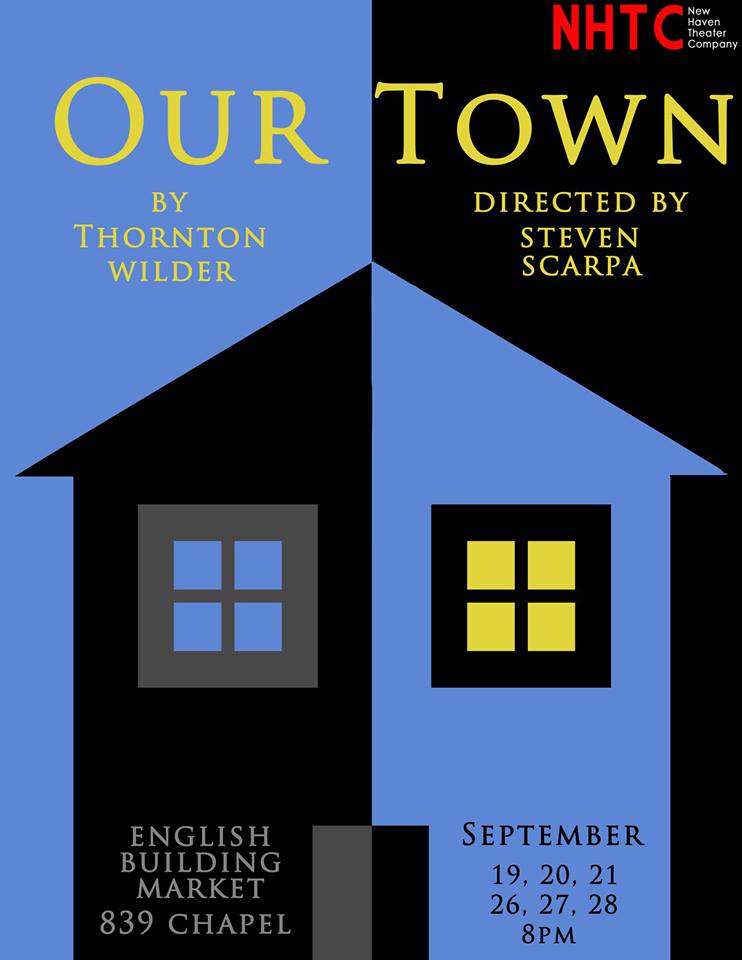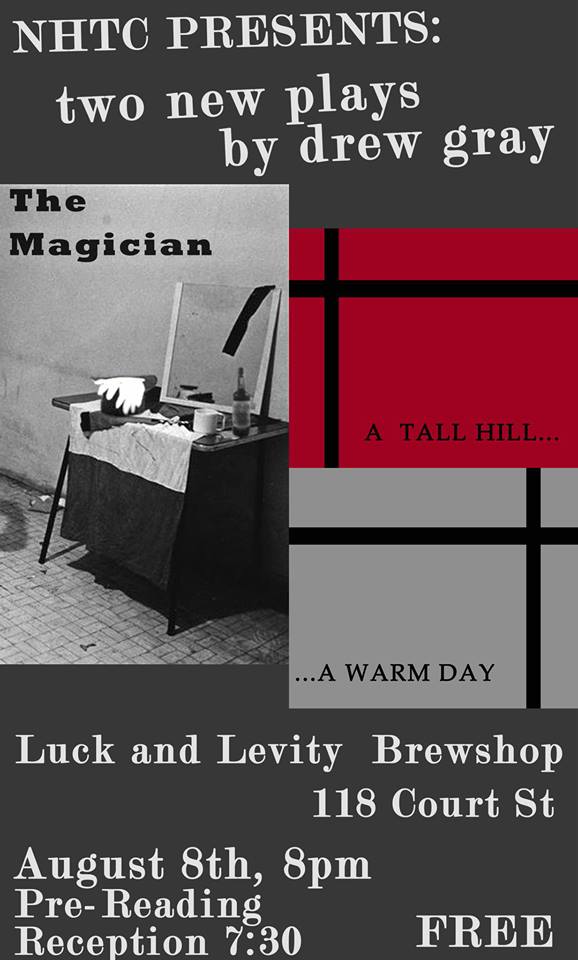This Wednesday, October 8, previews for the first show of the Long Wharf Theatre’s 50th anniversary season begin. And that first show is an American classic: Thornton Wilder’s Our Town. Not only an American classic that many probably think they already know, the play has direct links to “our town” (i.e., New Haven) because Wilder lived here and is buried here. Not that Grover’s Corners should remind us of New Haven exactly. The play is actually set in a fictional New Hampshire town, and yet: Artistic Director Gordon Edelstein, who directs the play, has conceived of his cast as representing our local demographic more than any small town in Wilder’s day would have. That means that his cast is of diverse ethnicity, and, what’s more, his Stage Manager—a role associated with lean-jawed white actors such as William Holden, Hal Holbrook, and Paul Newman—is a black woman (Myra Lucretia Taylor).

That fact alone should make for an out-of-the-ordinary Our Town. And, to make the production even more “ours,” Edelstein has cast it with Long Wharf alums. So, if you’ve been going to the LW with any degree of regularity in its 50 year existence, you’re bound to see someone up there you’ve seen before.
Two such returners glad to be back are Jenny Leona, who will play Emily, and Rey Lucas, George. These two roles are, of course, the “romantic interest” characters in the play, who begin as neighbors and high school classmates who then become sweethearts and then . . . .
Both Leona and Lucas have experience playing younger than their years. In fact, Leona has played an adolescent boy on more than one occasion, and Lucas played the Boy in Eric Ting’s well-received adaptation of Ernest Hemingway’s The Old Man and the Sea in 2009. Leona, on the other hand, was anything but boyish in last season’s The Underpants, also directed by Edelstein.
When I talked to the two actors about Wilder’s play and their roles, both admitted that Our Town was a play they’d had youthful familiarity with—as most of us do, they encountered it in high school. Leona saw the TV version at some point and says “it stuck with me.” Returning to work with Edelstein, she says, is a “great opportunity” and found that, reading the play again—it had been about 10 years—she found it truly beautiful and thought she would be “perfect for Emily.” And why not? Leona comes by the quaintness of Our Town naturally—she spent 7 years of her childhood in Ardsley, an idyllic little village in West Chester County, and says it has remained a touchstone for her sense of small-town life.
For Lucas, a YSD grad raised in Queens by Dominican parents, Our Town brought to mind “folksy” TV shows like My Three Sons or Capra films like It’s a Wonderful Life—“a little cheesy.” Invited to take part in the show, he was intrigued by Edelstein’s color-blind casting and deliberate effort to diversify the cast ethnically. What’s more, he sees Edelstein’s approach as “more moving and compelling” than what Lucas may have formerly thought of the show. “If we forget what we’ve seen” the play’s truth will be more direct, he says. The play shows us “real families, with struggles and troubles.” Following Wilder’s intention, Lucas says, should give us a play that “combines Norman Rockwell and Pablo Picasso.” An apt expression of the everyday charm of the play contained within its sense of the more abstract and mythic possibilities of human life.
Both Leona and Lucas are excited by the opportunity to play romantic leads, and both find that there is unexpected comedy in the relationship of George and Emily that comes from inviting the audience to think back to their own introduction to teen-age love, to grasp how awkward and thrilling is the experience for these two. Lucas notes that Emily “calls George on his arrogance” and he responds quickly by falling in love with someone who cares enough to want him to improve—“not the sort of thing I was looking for in high school,” Lucas chuckles. Leona finds the awkwardness of the young lovers “adorable” and is glad of the opportunity, thanks to Edelstein’s search for “the true moments in the play and its spirit,” to find the humor in the early situations in the play. The later parts of the play, where things grow more troubled and dark, Leona says, are where she feels her strengths as an actress lie. Which may come as a surprise to anyone who saw her broadly comic role in The Underpants. That role, for Leona, was something of a surprise, and Our Town gives her an opportunity to show a full range of emotions.
The camaraderie of the cast should be expected, since all have worked at Long Wharf before and many with Edelstein, but, even so, both actors remarked on how quickly the process of bonding as a cast occurred on this production. When I spoke to Leona and Lucas, the rehearsals had not yet gone into tech, with scenery and so forth, but both pointed out that the sets will be unusually spare. Though both have had training with minimal sets, the challenge of acting out interactions with non-existent props presents another interesting aspect of the staging of Our Town.
For audiences who may think they know all there is to know about Grover’s Corners, Leoana suggests that this production will be “eye-opening” and Lucas points out the play’s satisfying sense of, as it were, “telling the stories behind the photo albums” most of us keep of our lives. The Long Wharf 50th Anniversary production of Our Town invites us to look a little closer at the “givens” we live with and our assumptions about the significance of our own lives. “Our town” has changed, and, with this cast, so should Our Town.
Our Town By Thornton Wilder Directed by Gordon Edelstein
Long Wharf Theatre October 8-November 2, 2014
Tickets and info: Long Wharf








